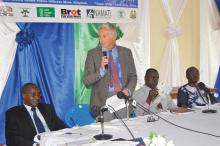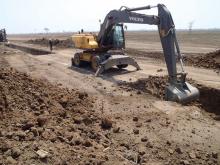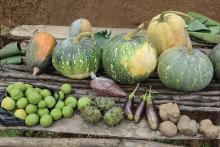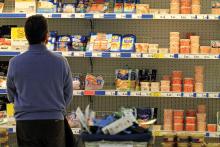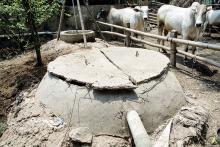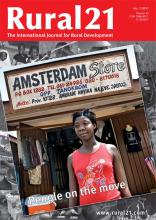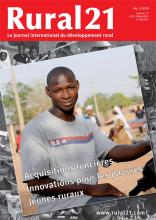Land Library
Welcome to the Land Portal Library. Explore our vast collection of open-access resources (over 74,000) including reports, journal articles, research papers, peer-reviewed publications, legal documents, videos and much more.
/ library resources
Showing items 1 through 9 of 22.Sierra Leone is one of the least developed countries in the world and is still recovering from a civil war that ended in 2002.
The buying up of farmland by international investors is viewed highly critically. However, sweeping judgements could be inappropriate, as our author demonstrates with survey results from Ethiopia and Uganda.
During the last few years, the donor community has increased its efforts to reduce the large amounts of fish lost in the distribution chain in artisanal fishery, an endeavour that ought to be welcomed in principle.
Providing extension and advisory services is expensive. There are salaries to be paid, transportation and operational funds to be provided, buildings to be rented or built, demonstration plots to maintain, and continued education to be offered to the extension staff.
Last year Angola earned 48 billion US dollars from petroleum. Yet the country that was once Africa’s largest agricultural producer is reduced to importing food. Now the government and private investors want to develop the agricultural sector, in the hope that Angola could become a new Brazil.
The livelihoods of many rural dwellers are dependent on having secure and equitable access to land. Tenure security is also a prerequisite for sustainable land management. The massive interest of commercial investors has increased the pressure on land globally.
Logistics costs play a decisive role in food price development, especially when looking at local agricultural supply chains, e.g. for fruit and vegetables. The logistics cost burden on groceries varies greatly, depending on the prevalent supply chain setup.
Migration is a huge phenomenon. The share of migrants in industrial countries’ populations doubled over the past three decades, and remittances ? ows to developing countries are larger than foreign investment or overseas aid.
Les pays en développement d'Asie doivent faire face à l'année la plus difficile depuis la crise financière de 1997/1998. L'effondrement du commerce mondial suite à la crise économique globale a été lourd de conséquences pour les industries manufacturières de la région.

